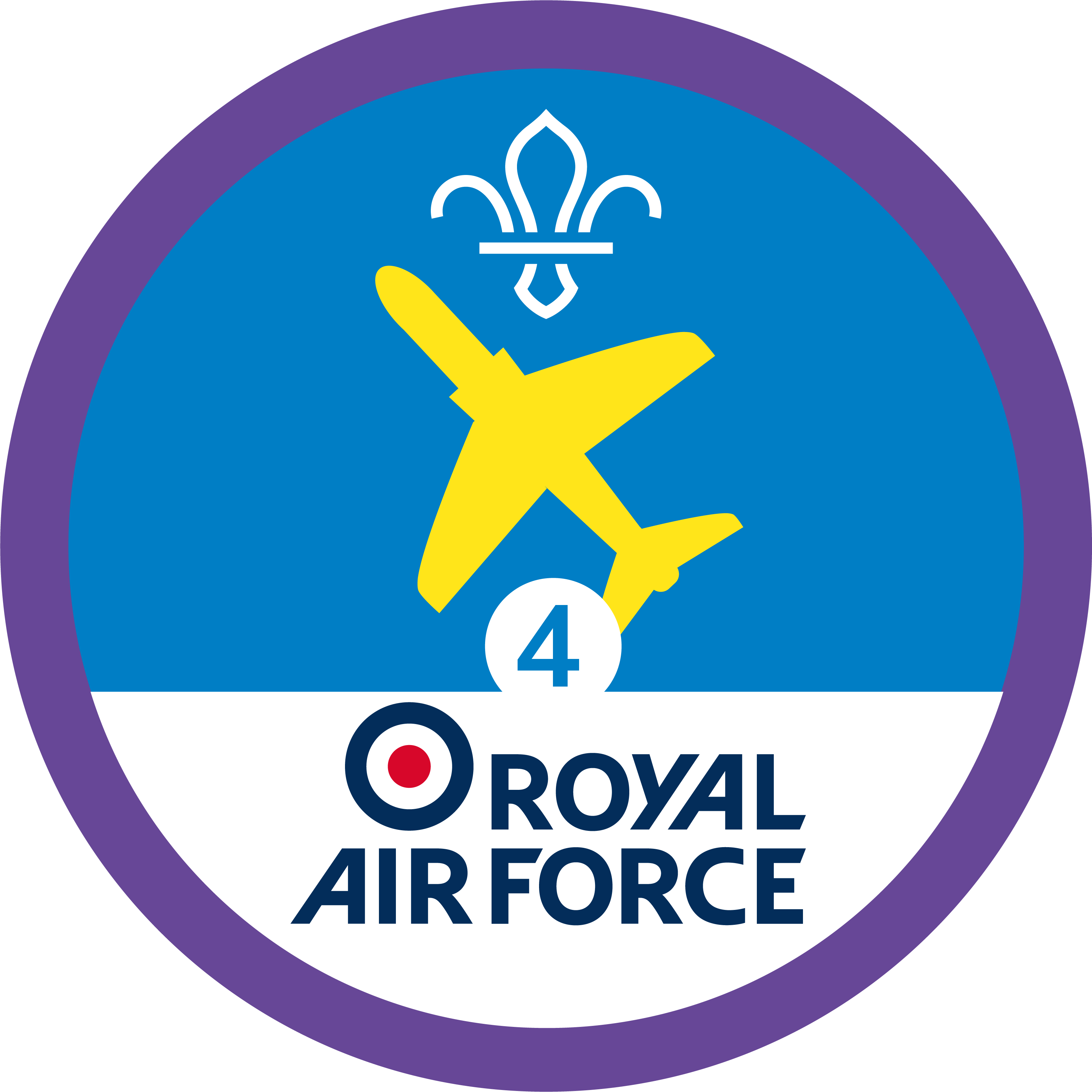Parachuting
What to expect
Parachuting involves jumping from an aeroplane and falling through the air (for a bit!) before opening your parachute and gliding gently down to the ground. It can be surprisingly physical too, as you have to remain in the right position while freefalling to manage your speed. People are usually attached to an instructor at first – you’d need to complete a certain amount of training before you could go it alone.
Parachuting’s only suitable for Explorers and Network members. Younger sections still have plenty of other adventures to choose from.
What you’ll learn
For many people, the trickiest bit of parachuting is the first step. After that, there’s no going back: the only way is down. Taking that first step might not be easy, but if you give it a go, you’ll always know that you can face your fears.
You’ll also get to experience the world in a different way involving all of your senses as you feel the rush of air, hear the wind, and see everything from a new perspective. See how it all changes once the parachute opens – does it feel different?
The exciting thing about having an instructor is that they’re likely to be an expert. Why not ask them about the aerodynamics of the parachute, or why you need to stay in certain positions during the adventure? They might be able to tell you about the science, or share some parachuting stories.
Fun facts
The first parachute was made and flown in Paris in 1797 – it got up to 980 metres! Since then it’s become a popular activity. The highest jump recorded happened in 2014 when Alan Eustace jumped from 41,425 metres.
Handy hints
- Don’t forget your camera. You’ll need a small one that you can attach securely to your body if you want to capture the experience from your perspective. Otherwise, people on the ground could try their best to get some action shots.
- Bring some hair bobbles Some places may ask anyone with long hair to tie it back so bring some spares along just in case.
Safety
You must always:
- Complete a risk assessment
- Have the right ratios of number of adults to provide suitable supervision
- Set up an InTouch process
- Know what to do in an emergency
- Share information with parents and carers with an activity information form
- Get approval from your commissioner
Be safe outdoors:
- Check the weather forecast
Preparing for your flying activities:
- Follow the general rules for air activities
- Make sure you have permission to access the airfield and it's safe to do so
- Make sure the pilot meets the requirements for the activity and have appropriate insurance in place
- Make sure everyone is appropriately briefed before the activity starts
- Stay safe when doing air activities, follow the air activities safeguarding guidance
- Notify HQ of your air activity.
Parachuting:
Always follow rule 9.10.8 Parachuting.
This activity can be led by you or someone else in Scouts:
- Acceptable instructor qualifications
- Pilot or flying instructor - as outlined in POR rule 9.10.8
You can go to a centre or use an activity leader who is not part of Scouting:
You must find a suitable provider who meets the following requirements:- The centre/instructor should hold one of these:
- Pilot or flying instructor - as outlined in POR rule 9.10.8
The provider must have public liability insurance.
Guidance
Reflection
Parachuting was a chance for people to experience the feeling of falling in a safe, controlled way. How did people feel at different stages of the adventure, for example as the plane climbed higher, as they got ready to jump, and when the parachute opened? Parachuting required a lot of courage – even if people didn’t manage the full challenge, they might have faced their fears by putting on the equipment or getting in the aeroplane at all.
Parachuting’s also a unique way to connect to the natural environment. Did people notice the ground beneath them (and the sky around them!) as they were descending, or was it all a blur? What did people see? How did it feel to put their feet back on solid ground?
- Parachuting can often be adapted so more people can give it a go. Some centres have facilities that cater for people with additional needs and experienced instructors to help everyone achieve their goals. Get in touch with your local provider to chat through the needs of people in your group – make sure you give them plenty of notice.
- British Skydiving has more information about skydiving for disabled people.
All Scout activities should be inclusive and accessible.
If anyone enjoyed the thrill of parachuting, they might also enjoy gliding or parascending.
